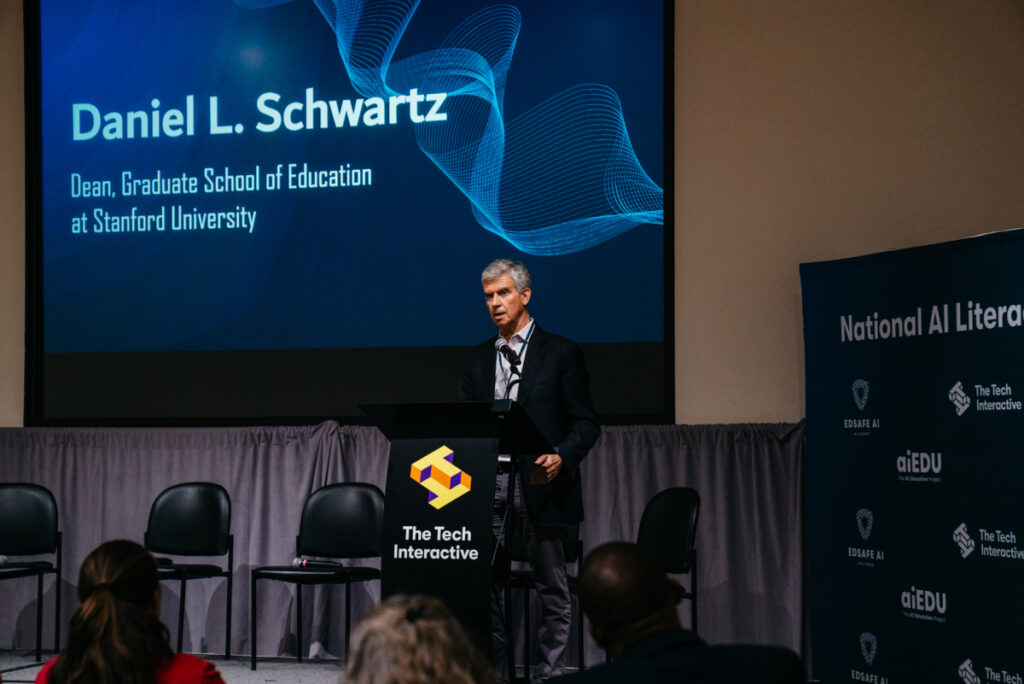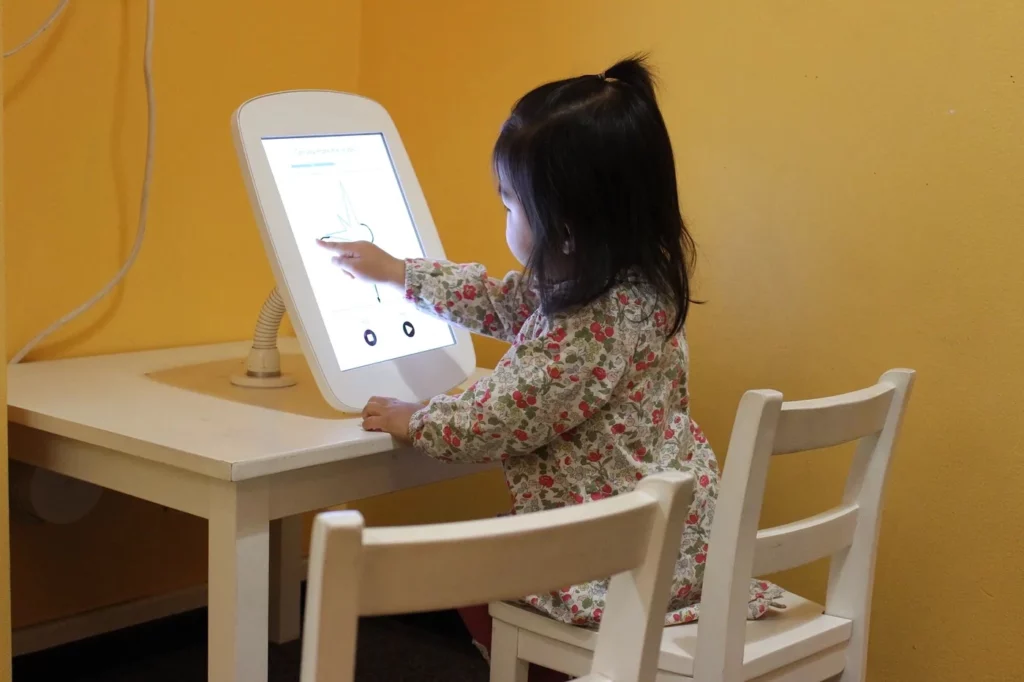In 2019, Alex Stolyarik founded a virtual reality education startup called EcoSystemOne, which leveraged storytelling, games, and immersive technology for learning. Over three years of research and development, some of which was supported by the National Science Foundation, he realized that by diving more deeply into the science and design of learning, he could help his team improve and finesse their product.
“I wanted to take EcoSystemOne to the next level,” said Stolyarik, MS ’23, who enrolled in the Learning Design and Technology (LDT) master’s program at Stanford Graduate School of Education (GSE) and found an additional opportunity to develop EcoSystemOne through the Learning Design Challenge, a program of the Stanford Accelerator for Learning.
The Accelerator’s Digital Learning Initiative, which launched the Learning Design Challenge, explores a momentous question facing the field of education: How will technology support learning in fundamentally new ways? The Learning Design Challenge puts Stanford students to the task of building innovative solutions that address this question.
The Learning Design Challenge demonstrates that Stanford’s culture of innovation is not limited to engineering and business, but extends to education, too.
The Learning Design Challenge was created by Keith Bowen, now the Program Director, a lecturer at the GSE who has been teaching classes on educational technology at Stanford since 2014. Launched in the 2020-2021 academic year and welcoming its fourth cohort in winter 2023, the challenge leads students through the process of identifying a pressing educational problem, investigating the problem with learners, designing and prototyping solutions, getting feedback from faculty and Silicon Valley mentors, and pitching their project for grant funding.
The EDUC 254 course, which takes place in winter and spring quarters, includes workshops on topics including learning science, human-centered design, and building effective teams. The course serves as a “sandbox” for participants to work on sustainable education technology projects as for-profit startups, non-profit organizations, social enterprises, and academic research. Stanford undergraduate and graduate students from the GSE, the School of Humanities and Sciences, the Graduate School of Business, the School of Medicine, the Doerr School of Sustainability, and the School of Engineering have participated for academic credit, joined by students from universities around the globe. These multidisciplinary groups have launched projects that have reached learners worldwide.
The co-founders of EpicConnect designed a digital peer feedback tool to support community college instructors in the EPIC Community College Fellowship, a program that two of the team members were closely involved with prior to joining the Learning Design Challenge.
One of the first programs launched by the Stanford Accelerator for Learning, the Learning Design Challenge is a model for what the Accelerator aims to accomplish. The program bridges research and innovation, and empowers young scholars to address pressing educational challenges. It brings together engineers and learning design experts to build early-stage projects. And it achieves scale through partnership – specifically a close collaboration with StartX, a nonprofit community of serial entrepreneurs, industry experts, and growth-stage startups that has supported Stanford innovators for years.
After participating in the Learning Design Challenge, Stolyarik’s team went on to be a part of the GSV Elite 200, a highly competitive group of top edtech startups selected from nearly 1,000 applicants, which gave them the opportunity to pitch their product at the 2023 ASU+GSV Summit. His team also won a $100,000 grant from Unity and led a Stanford course where students used EcoSystemOne to build experiences for middle school learners.
“The Learning Design Challenge brought me a dose of reality and prepared me for the real world,” said Stolyarik, who has been passing along the wisdom he gained as a mentor for this year’s cohort.
PeerTeach supports elementary peer tutoring in math, of crucial importance after schooling was disrupted during the pandemic. The gamified platform assesses students’ knowledge of math concepts and matches a student who has mastered a concept with a peer who needs more help on it.
“Students from across campus are forming a community of innovation and culture of collaboration around learning design and learning technology,” said Bowen. By providing key tools, connections, and support, the Learning Design Challenge is bridging research and practice for a new generation of scholar-innovators.
Learn more about the Learning Design Challenge and the Digital Learning Initiative.



